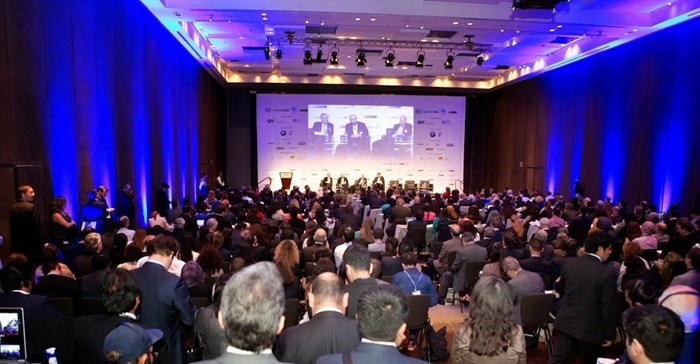
Top stories





Marketing & MediaWarner Bros. was “nice to have” but not at any price, says Netflix
Karabo Ledwaba 1 day

More news

Logistics & Transport
Maersk reroutes sailings around Africa amid Red Sea constraints

















Business has a significant stake in the talks. Company representatives will play a key role in shaping the agenda and there are more than 180 business events planned in Paris. The UN climate chief Christiana Figueres has called for "business involvement at the highest levels" at COP21, while UK prime minister, David Cameron, called for a stronger role for business in his address. Climate change is "too large for governments alone to deal with" and businesses need "long-term certainty for investment", he said.
So which are the businesses that participate in COP meetings? Will COP21 result in meaningful action by business or will it be another massive greenwashing exercise under the benevolent gaze of the United Nations?
While a wide range of industry sectors participate at COP meetings the usual suspects are not hard to identify. First, there are the "good guys" - companies in the renewable energy business and technology companies offering products and services for environmental protection, energy efficiency, water and soil conservation, and "clean agriculture".
Then, there are the "bad guys" - oil and gas companies, mining corporations, electricity generators and other fossil fuel-based industries, eagerly promoting their green credentials.
But perhaps the most influential groups are the various industry and trade associations that directly and indirectly lobby policy makers. Industry associations such as the Confederation of European Paper Industries, European Steel Association, European Association of Metals and the International Association of Oil and Gas Producers regularly lobby EU climate policy makers, advocating business friendly policies.
They also provide technical advice on their preferred climate policies, mobilise support from other industry associations and organise meetings and dinners between CEOs and policy makers. A recent report by the Policy Studies Institute found that 77% of the Fortune 500 corporations lobbied climate policy makers through their trade associations.
Every corporation, industry association, and myriad "responsible business" coalitions appear to agree that what business needs to agree on above all else is a global carbon price. The economic logic is that a carbon price can incentivise low carbon innovation and provide a stable policy framework for business.
The problem of course is that a price on carbon and emissions trading, while being cost effective and efficient for business, will have little if any effect on absolute greenhouse emissions. This is because it will take a relatively high carbon price (to the order of US$30-US$40 per ton according to experts) to shift investments to cleaner energy sources. With the current price of carbon under the EU's Emissions Trading Scheme languishing at around US$6 a ton though, there is little incentive for companies to make these investments.
Plus, a price on carbon simply serves to raise the cost of fossil fuel energy and does nothing to lower the costs of alternative energy sources. All the major oil companies have internal carbon prices in place, yet they continue to invest in fossil fuels.
COP21 will likely see businesses set aspirational goals committing to move to 100% renewable energy sources, they will make numerous climate pledges, and they will mobilise support for carbon pricing and emissions trading. But there will be no concrete commitments or deadlines.
Business can already boast its support for COP21. A consortium of companies has given £25m to the conference - for which it has taken flak from green groups. Sponsors include some of the largest carbon emitters in the world: EDF Energy, Engie (which accounts for nearly half of France's annual carbon output), Air France (which has opposed emissions reductions in the aviation sector), and BNP Paribas (one of the top ten global coal lending banks during 2005-2013). BMW, Coca-Cola and BT are also sponsors of the event.
Ultimately business involvement at COP21 will ensure there is no "distortion of competitiveness in the global market" as the International Chamber of Commerce Climate Working Group puts it. And as long as business-friendly proposals continue to define climate policy, as they have in the past, there can never be any meaningful climate action.
Business as usual will continue, despite all the pledges and climate summits. Climate policy, friendly or otherwise, needs to drive business if new business models are to emerge - not the other way round. Otherwise, as environmentalist Bill McKibben warns us "even before we run out of oil, we will be running out of planet".![]()

The Conversation Africa is an independent source of news and views from the academic and research community. Its aim is to promote better understanding of current affairs and complex issues, and allow for a better quality of public discourse and conversation.
Go to: https://theconversation.com/africa